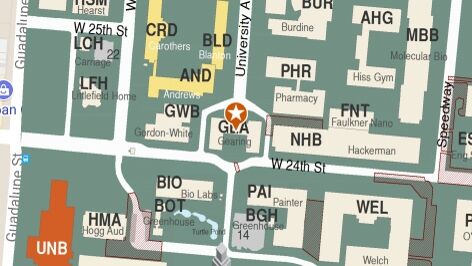Human Development and Family Sciences
Major in the College of Natural Sciences

The Department of Human Development and Family Sciences (HDFS) explores the psychological, social, and biopsychosocial processes that lead individuals and families to a spectrum of outcomes, from productivity, health, and well-being at one end to illness, dysfunction, and distress at the other.
HDFS at UT-Austin is a dynamic program that is among the nation's best interdisciplinary departments. Students have the option to pursue the Bachelor of Science (BS) of the Bachelor of Science and Arts (BSA) in HDFS.
The BS in HDFS focuses on the study of human development, individuals in a family context, relationships, and well-being within the family and the broader social, economic, community, and governmental environment. All HDFS majors have the opportunity to enhance their education through research and observation.
The BSA in HDFS degree is designed to give each student an opportunity to combine a core mathematics or science experience with an interdisciplinary curriculum that complements their major. The flexibility and interdisciplinary nature of this degree makes it an excellent choice for students interested in medical school and other health professions.
Because the HDFS program is housed in the College of Natural Sciences, all HDFS students will develop a strong foundation in math and science.
Students who study HDFS will be prepared for careers in human services, public policy, advanced research and graduate school.
Freshman and External Transfer Admission
ShowProspective University of Texas at Austin students should visit UT Admissions to learn about the application process and how to declare a major.
Internal Transfer Requirements
ShowStep 1: Internal transfer students must apply to the College of Natural Sciences prior to completing 60 hours or four long semesters at UT. Applications are due to the College of Natural Sciences in the spring. Learn more about the college's internal transfer requirements.
Step 2: Once accepted into the College of Natural Sciences, all students will start as entry-level human development and family sciences majors until they successfully complete the entry-level requirements.
Required Courses
ShowFor information on required courses, students can view the Human Development and Family Sciences degree plans.
Practicum All HDFS students are required to complete 6 hours of practicum during their time at UT. This can be completed via research or field practicum and is completed during junior or senior year
Specializations
ShowBS in HDFS Departmental Honors as well as special honors programs are available for HDFS majors.
- Human Development and Family Sciences
- Human Development and Family Sciences Honors (Dean's Scholars)
BSA in HDFS In addition to major coursework, BSA students must complete 12 hours of 'Language, Arts, and Culture' coursework from areas such as fine arts, humanities, social and behavioral sciences, and foreign language or culture. BSA students are also required to complete a minor OR transcript-recognized certificate program.
Personality
ShowAn HDFS student is people-focused and has a strong appreciation for science. They recognize the importance family and personal relationships play in individuals' lives and is fascinated by the complexity of human relationships.
Many HDFS students conduct research as undergraduates. Learn how you can get involved in the UT research community.
Skills
ShowStudents in the human development and family sciences major develop:
- Knowledge and understanding about family dynamics and human development
- Observation skills of children and families
- Research methods
- Excellent preparation for graduate training, health professions, and fields involving work with children, families, and adults
